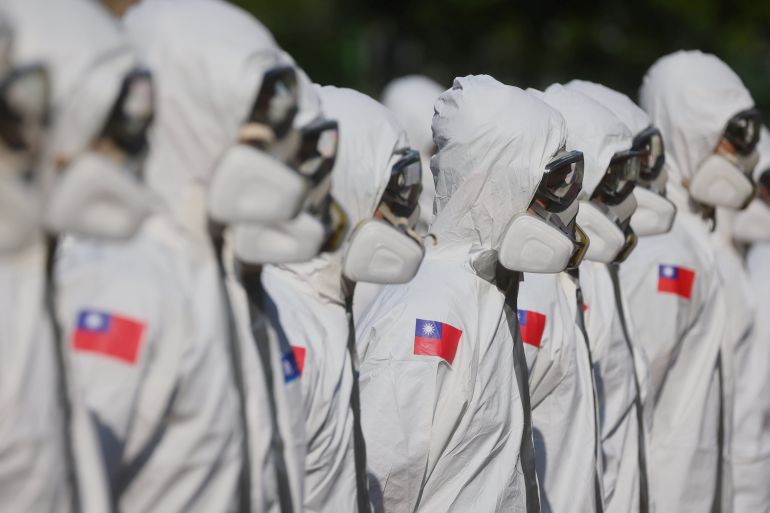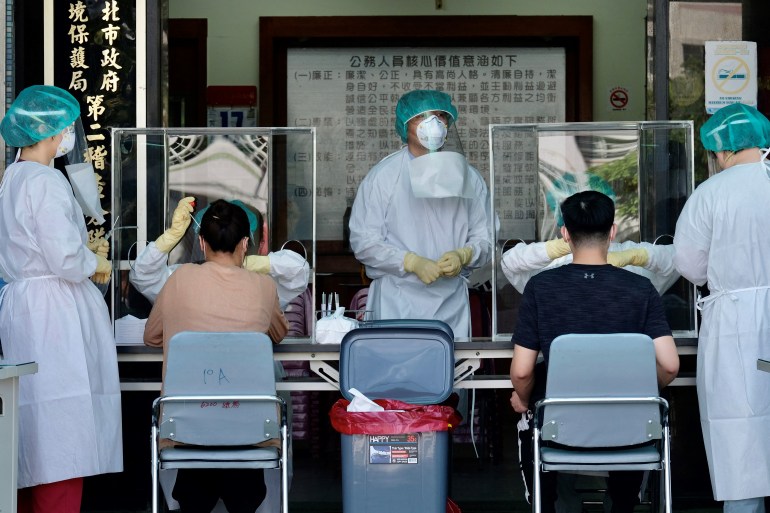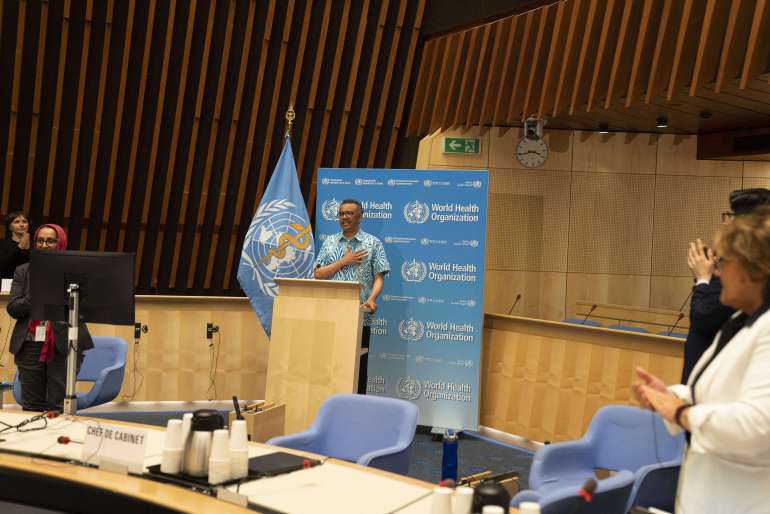Taiwan holds out hope for seat at World Health Assembly meeting
Five years after it was excluded, self-ruled island claimed by China has found new friends in campaign to attend health body as an observer.

Taipei, Taiwan – Taiwan and its supporters have been campaigning hard to see it return as an observer at the World Health Assembly, the governing body of the World Health Organization, which is due to meet from May 24.
Taiwan’s successful handling of COVID-19 for more than a year and a half has brought renewed attention to Taiwan’s absence from the WHA, which it has not attended since the 2016 election of President Tsai Ing-wen.
Keep reading
list of 4 itemsTaiwan tightens curbs, expects arrival of more COVID vaccines
Hong Kong closes Taiwan office amid rise in diplomatic tensions
Panic buying in Taiwan as new COVID-19 rules kick off
US legislators have regularly called for Taiwan to return as an observer in years past, but this time the G7 has thrown its support behind Taiwan while a coordinated social media campaign this year under the hashtag of #LetTaiwanHelp has expanded to include legislators from Europe, Australia, Canada and New Zealand.
At the end of April, 16 members of the Inter-Parliamentary Alliance on China (IPAC) released a campaign video urging the WHA to invite Taiwan, coinciding with a surge in tweets from US Congressional legislators and the US State Department.
“In the past, efforts out of Congress centred on sending letters to the WHO or the Executive Branch or to capitals abroad to ask for support for Taiwan’s inclusion. This year, however, there was a much more public and thus, more far-reaching, approach,” said Jessica Drun, a non-resident fellow at the US-based Project 2049 Institute.
“This brought in parliamentarians from across the world – and across party lines. It was likewise able to grow organically on the social media platform, generating statements from other leaders as well as public figures and activists,” she said.

Taiwan’s Deputy Minister of Foreign Affairs Tien Chung-kwang has said the government will continue to hope for an invitation until the last minute, as it makes use of the #LetTaiwanHelp hashtag to drum up support and the new #TaiwanIsHelping hashtag to promote its donations of oxygen tanks and other medical supplies to hard-hit countries such as India.
#LetTaiwanHelp
Yeh Ching-chuan, who attended the WHA in 2009 as an observer when he was minister of health, says that at that time Taiwan was able to bring approximately 15 experts to attend scientific sessions and present on topics including the island’s successful national insurance programme.
“It is a short meeting,” Yeh said.
“The WHA is only two days and then there are the scientific meetings, but it is meaningful, the participation. For those countries that don’t have a diplomatic relationship with Taiwan, they are still interested in some fields and contacted our experts even after they come back.”
Great meeting with Minister Chen from Taiwan to discuss the ongoing pandemic & global health issues. The U.S. supports Taiwan’s ability to access vaccines, its contributions to health security, & its return to observership at the #WHA #LetTaiwanHelp pic.twitter.com/xC4cPoFSZm
— Office of Global Affairs, HHS (@HHS_Global) May 21, 2021
#HRBC As the Chair of the CTPFG I would like to congratulation President @iingwen as she celebrates the 1 year anniversary of her inauguration
Taiwan is facing challenges with a surge of coronavirus, it shows that disease knows no border. Taiwan needs to be included in the WHO.
— Judy Sgro (@JudySgroMP) May 20, 2021
Until this month, the island had less than 1,200 coronavirus cases and 12 deaths, although infection rates in Taipei and New Taipei City are now climbing following an outbreak linked to a cluster that began with a group of China Airlines pilots in early May.
Known formally as the Republic of China, Taiwan originally represented China at the WHO and WHA but it was expelled from the organisations in 1972, a year after Beijing was formally admitted to the United Nations.
Taiwan was invited to attend an observer from 2009 to 2016 during the relatively China-friendly presidency of Ma Ying-jeou but that offer was rescinded once Tsai took office.
New friends
Since her election, Beijing, which claims the self-ruled island as its own, has pushed to limit Taiwan’s international presence and participation even in non-political organisations such as the WHO and the International Civil Aviation Organization (ICAO).
The number of countries with which Taiwan has maintained formal diplomatic relations has also shrunk since Tsai became president – with just 15 states currently recognising Taipei over Beijing.
However, growing fears about China’s influence in Europe has also brought Taiwan new allies in unlikely places including Lithuania, the Czech Republic and the European Parliament.

Ahead of the WHA, the Czech Senate passed a resolution calling for Taiwan’s participation in “all meetings, mechanisms and activities” of the WHO, while Lithuania and Czech legislators sit on IPAC, along with representatives from 10 other European countries.
“A couple of years ago, Taiwan was not seen as one of the major players in either the European Asia strategy nor countries’ [individual] strategies. This has obviously changed due to the developments in Hong Kong, Xinjiang, the coronavirus pandemic, and the US administration focus on the island,” said Ivana Karásková, a China research fellow and a project coordinator at the Association for International Affairs in Prague.
“As for the practical implications, it may not change the island’s isolation in international organisations and forums but it clearly signals that countries are willing to engage with Taiwan.”